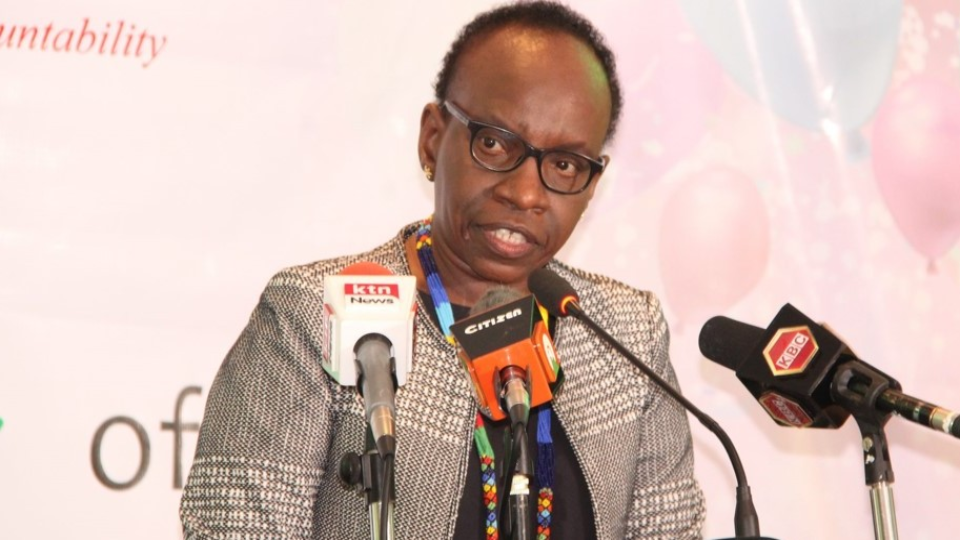Counties Lose Billions in Stalled and Abandoned Projects, Audit Reveals
A recent audit report for the 2023/2024 financial year has uncovered a troubling trend of financial mismanagement in Kenya’s county governments, with billions of shillings sunk into stalled, abandoned, or unused projects. The findings, presented by Auditor General Nancy Gathungu, highlight inefficiencies, lack of transparency, and weak oversight, resulting in significant losses for taxpayers and delays in critical service delivery.
The report reveals that at least 688 projects across various counties, collectively valued at 23.3 billion shillings, have stalled. Of these, 249 projects worth 20 billion shillings, initiated by 33 counties, have either stalled or been completely abandoned. Additionally, 40 completed projects in 10 counties, valued at 366.4 million shillings, remain unused, further compounding the financial waste. These figures paint a stark picture of systemic issues in project management and resource allocation within county administrations.
The stalled projects span critical sectors, including healthcare, infrastructure, and education, depriving citizens of essential services. The report notes that some projects have lingered incomplete for years, with completion deadlines long expired, while others have seen significant cost escalations due to revisions in contract sums or penalties for delayed payments.
Auditor General Gathungu emphasized that the stalled projects reflect a broader pattern of financial mismanagement and governance failures. Payments have been made for projects that show no progress, raising serious doubts about the value for money. The report points to weak oversight and lack of accountability as key contributors to the problem, with some counties failing to adhere to the Public Finance Management Act of 2012, which mandates transparency and prudent use of public funds.
In some cases, counties have continued to pour funds into projects that have no clear path to completion, while others face penalties for delayed payments on milestones already achieved. The report also highlights instances where project costs have ballooned far beyond their original budgets, further eroding public trust.
The audit singles out several counties for significant delays and financial losses. Nakuru County leads with 582 delayed projects valued at 7.6 billion shillings, followed by Bungoma County with five projects worth 3 billion shillings. Trans Nzoia County has stalled projects valued at 2.2 billion shillings, while Narok County has one delayed project worth 1.5 billion shillings. Other counties flagged include Nandi (11 projects, 1.2 billion shillings), Kirinyaga (five projects, 1.2 billion shillings), and Uasin Gishu (two projects, 930.2 million shillings).
These delays not only strain county budgets but also hinder service delivery, leaving residents without access to promised infrastructure and amenities. The report underscores that such inefficiencies indicate ineffective management of public resources, directly impacting the quality of life for citizens.
The findings have sparked calls for greater accountability and stricter oversight of county projects. The Auditor General’s report urges county governments to address these issues by improving project planning, ensuring timely completion, and enforcing transparency in financial dealings. The report also recommends stronger measures to hold public officers accountable for mismanagement and to ensure compliance with legal frameworks governing public expenditure.
The audit’s revelations come at a time when counties are already grappling with delayed funds from the national treasury, underperforming revenue collection, and high wage expenditures. These challenges have squeezed development budgets, making the mismanagement of funds for stalled projects even more detrimental. The report serves as a wake-up call for county governments to prioritize efficient resource use and deliver on their promises to constituents.
As Kenya continues to navigate the complexities of devolved governance, the audit report underscores the urgent need for reforms to prevent further losses and ensure that public funds translate into tangible benefits for citizens. Without swift action, the cycle of stalled and abandoned projects risks undermining the progress of devolution and eroding public confidence in county administrations.


